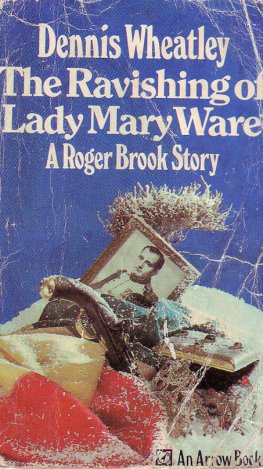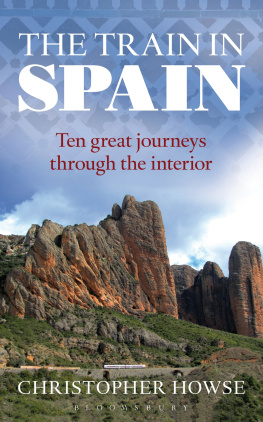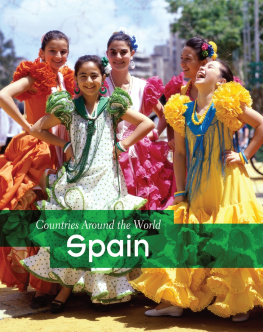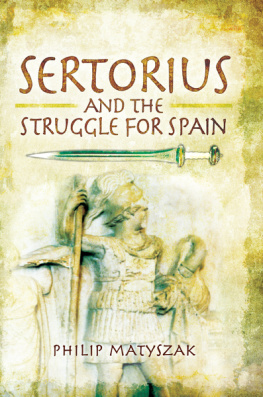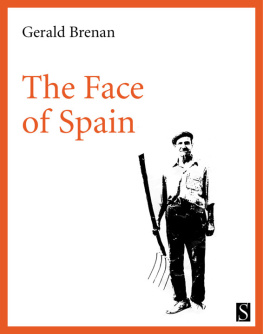DENNIS WHEATLEY
VENDETTA IN SPAIN
THE BOOK CLUB
121 CHARING CROSS ROAD LONDON, WC2
Dennis Wheatley 1961 First published 1961
For SHELAGH
Still 'the dazzling young Duchess of Westminster'* who knew and loved Spain at the period of this story.
Robert Sencourt in "King Alfonso" (Faber and Faber, 1942)
Death at High Noon
The principal streets of Madrid presented a riot of colour. From a cloudless sky the sun poured down on the flags of all nations, long strings of pennants and thousands of yards of red and yellow bunting draping the innumerable stands that had been erected on every available space beyond the pavement line. In addition, following the eastern custom brought over by the Moors, carpets, woven rugs and colourful tapestries hung from every window and balcony. On both sides, behind lines of soldiers in bright uniforms, the pavements were a solid mass of people in gala attire. Others filled the stands, every window and even the roof-tops. At intervals along the route there rose tall flagpoles surmounted by gold crowns and bearing shields with the arms of Spain and those of Princess Ena of Battenberg, for King Alfonso XIII had that day, the 31st of May, 1906, married the granddaughter of Queen Victoria.
The side streets, although nearly deserted, were little less gay; for the marriage of the young King, aged twenty, to the beautiful, golden-haired English Princess, aged nineteen, was a most popular one, and even the poorest Madrilehos had shown their joy by hanging flags and strips of carpet from their windows.
Down one such street behind the Calle Mayor several small groups of smartly-dressed ladies and gentlemen were hurrying. They had just left the church of San Jeronimo in which the wedding mass had been celebrated with great pomp and splendour, and were making their way to a special stand reserved for certain court officials and distinguished guests to witness the procession on its way back to the Palace.
In one of these groups the most striking figure was Armand, Count de Quesnoy, the thirty-one year old son of the ninth Due de Richleau. He was only a little above medium height but carried himself with the easy grace of a man who had spent most of his life hunting, dancing, fencing and soldiering. His hair was dark and slightly wavy, his forehead broad, his face oval with a rather thin but well moulded mouth, and a pointed chin that showed great determination. His nose was aquiline, his eyes grey, flecked with tiny spots of yellow; at times they could flash with piercing brilliance, and above them a pair of 'devil's eyebrows' tapered up towards his temples. At the moment his slim figure was hidden by the robes of a Knight of the Golden Fleece, and it was his membership of this illustrious Order that had secured for him a place in the church to witness the wedding ceremony.
Beside him, a hand on his arm, was his wife, Angela: a typical English beauty with big pansy-brown eyes and a milk-and-roses complexion. Her forehead was broad, her eyebrows well arched, and her fine jaw-line, square almost to the point of truculence, showed her to have a personality as determined as her husband's. On her high-piled hair she wore an enormous hat decorated with tulle and yellow roses. In spite of the heat she was wearing a dress made of satin. It was also yellow, had leg-of-mutton sleeves, almost touched the ground and was excruciatingly nipped in at the waist above an armour of whalebone corset.
She had been his first great love and he hers; but she had already been married when they met and many vicissitudes had prevented the consummation of their love until at last tragedy had broken the barrier that kept them apart, and fourteen months earlier she had become his Countess.
With them in the group that had slipped away from the church as soon as the Te Deum had been sung were Colonel Guy Wyndham and several other officers of the 16th Lancers who had formed Princess Ena's military escort on her journey to Spain. At the end of the side street, on showing their passes, the police made a way for them through the crowd into the Calle Mayor about two-thirds of the way down, where this narrow street in the heart of old Madrid widens out in a small square called the Plaza de la Villa.
There the group separated, the de Quesnoys and several others crossing the square to the stand which had been erected in front of the church of Santa Maria, while Colonel Wyndham and his officers went to a nearby house occupied by a Mr. Young, one of the secretaries at the British Embassy, who had invited them and the British Ambassador, Sir Maurice de Bunsen, to see the procession from its windows.
The stand was already three parts full with Spanish hidalgos and their ladies, and foreign notabilities, whose rank had not been high enough to secure them places in the church, and now the front rows, too, were rapidly filling up with the more exalted representatives of the aristocracy of many nations. De Quesnoy's Order of the Golden Fleece made him a Grandee of Spain; so on that account he ranked among them, but that he and his wife should have been allotted seats in the very front row he knew must be due to the influence of the King's cousin, the young Due de Vendome, who was devoted to him.
Francois de Vendome had been the instrument chosen by fate to alter the whole course of de Quesnoy's life. The Due de Richleau was by birth a Frenchman, but he had married a Russian Princess, and since he loathed the French Republican regime he had lived for many years as a voluntary exile on a large property of hers a little to the north of the Carpathians; so de Quesnoy had been born and brought up in Russia.
At the age of eighteen, in order that he might establish his right to French citizenship, he had, against the strong opposition of his father, decided to do his military service in France, and had chosen the Army as his career.
That career had opened with promise, but political differences with his superiors had resulted in his being packed off to insufferably dreary garrison duty in Madagascar. There, for the following two-and-a-half years, he had succeeded in overcoming discomfort and boredom by devoting his abundant spare time to an intensive study of the occult. Then, changes at the War Office had resulted in his being posted to Algeria. At that time France was opening up the interior of North Africa, so while there he was almost constantly on active service against the tribesmen and, as he soon showed himself to be a born cavalry leader, his promotion was rapid. Another three years and he was a Brevet Lt.-Colonel decorated with the Legion d'Honneur.
When at last recalled to France early in 1903 he had hoped to be given employment with a regiment, as the greatest ambition of his life was, in time, to command a Cavalry Division, but fate had decreed otherwise. The Republican government was riddled with corruption, and so fanatically atheist that it was purging the Army of many of its ablest officers solely because they adhered to their religion. A group of patriots had decided that the only remedy was to restore the Monarchy. Among them was an Assistant Chief of Staff named General Laveriac, and he had drawn de Quesnoy into the conspiracy.1
The Monarchists' choice for King was the Due de Vendome, in whose veins ran the blood of Henry IV, the founder of the Bourbon dynasty. His father had married the Spanish Infanta Maria Alfon-sine, so he had been brought up in Spain but, like de Quesnoy, he insisted on going to France to do his military service. Soon after de Quesnoy's return, de Vendome was due to become an officer-cadet at St. Cyr, and Laveriac had asked the Count to take a post as
1 See The Prisoner in the Mask.
Chief Instructor there so that he might watch over the young Prince and gradually initiate him into the plan to stage a
Next page

